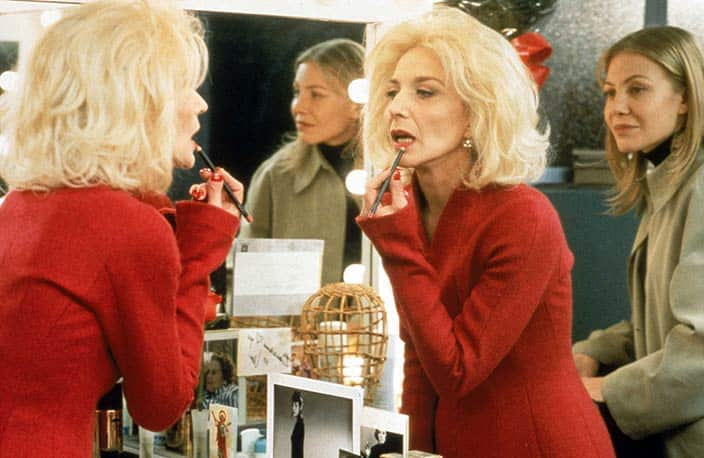After years in the economic wilderness, Spain’s box office finally seems to be on the up, with Emilio Martínez-Lázaro’s energetic Spanish Affair destroying all previous records. The hit, starring stand-up comedian Dani Rovira, opens the 2015 Spanish Film Festival and is described by festival director Genevieve Kelly as a “bright and breezy” rollick that will appeal to the shared Australian sensibility of being able to laugh at yourself.
Elsewhere in the festival, Pablo Malo’s legal thriller Lasa & Zabala takes a more serious look at the Spanish-Basque dichotomy. Kelly also recommends checking out Alberto Rodríguez’ Marshland, which swept the board at the Goyas (Spain’s Oscar equivalent), taking home 10 gongs. “It’s such a beautifully shot, gritty mood detective piece,” Kelly says. “It almost feels like True Detective. It has that very eerie kind of feeling, with everyone having something to hide. It keeps you guessing.”
Food lovers will flock to Patricia Pérez’ documentary Finding Gaston, which showcases the craft of Peruvian chef Gastón Acurio. “It’s his charisma that really holds it together,” Kelly says. “He’s passionate about using local ingredients and connecting more directly with producers and I think that will resonate with Australian audiences. That, and everyone loves a good cooking show. There’s so much incredible food in there that will make your mouth water.”
Not usually a fan of the horror genre, Kelly was surprised by how taken she was with Juanfer Andrés and Esteban Roe’s Shrew’s Nest, a sort of Spanish take on Stephen King’s set in the ‘50s. It stars Macarena Gómez, who appeared in last year’s Witching and Bitching, as a religious obsessive who self-medicates on morphine and sees apparitions of her dead father. When upstairs neighbour Carlos (Hugo Silva) falls down the stairs, breaking his leg, she takes him in but won’t let him go.
Closing night wraps with the searing black comedy of Damián Szifrón’s Oscar-nominated , relaying six wicked vignettes revolving around the theme of revenge. “Szifrón really touches on those things that drive people to their absolute limits,” Kelly says. “It’s so wicked in so many ways, but that’s what makes it so enjoyable.”
Excited about this year’s crop, we asked Kelly for her top five Spanish films of all time. She tell us why she loves them, in her own words, below.
All About My Mother (1999)
Pedro Almodóvar could probably take all five spots. His irreverence, passion and amazing balance between comedy and tenderness are what make him so successful. He has this wonderful knack for accessing the very inner workings of people, including those on the outskirts of society. All About My Mother won the Oscar for Best Foreign Language film and it’s one of the all-time greats, a melodramatic soap opera interwoven with dark issues of drug addiction and death. It has these really strong female characters, including Penélope Cruz as an HIV-positive nun. She’s just incredible, exploring this beautiful resilience of women and it’s so theatrical.

Source: All About My Mother
Talk to Her (2002)
From one of Almodóvar's best films exploring the relationships between women to this great representation of two male characters. Javier Cámara and Darío Grandinetti (an Argentinian actor who also appears in Wild Tales) are incredible as two lonely men holding each other together while their girlfriends are in comas, creating a bond of friendship to pull them through. Of course, I love and as well, but I can’t just talk about Almodóvar.

Source: Talk to Her
Biutiful (2010)
There are only so many films I’ve seen multiple times, including about 20, but Biutiful is one. It really stayed with me. It’s so overwhelmingly melancholy, and there’s something about that in films that when they get to that part of me, I feel like I end up never getting away from them. Javier Bardem really nailed his performance as this businessman of the underworld who’s trying to balance fatherhood and the bleakness his livelihood, with the illegal workers. The bodies washing up on the beach literally broke me.

Source: Biutiful
The Sea Inside (2004)
Javier starring again. This is also extremely melancholy. It’s an important story about the merits of euthanasia and the humanity that it can preserve for people. It’s such a difficult issue, but it’s so delicately dealt with here and beautifully portrayed by Bardem. He made it feel real and it didn’t delve too far into sentimentality. Again, this one really stayed with me. There are incredible visuals. It’s so personal, not too politicised and it won the Oscar for Best Foreign Language.

Source: The Sea Inside
Open Your Eyes (1997)
Most people will know , which was okay, but the original Spanish version is incredible. It also stars Penélope Cruz and has exactly the same story – the idea of this handsome rich man who falls in love with a woman and the beautiful melding of dream and reality – so you don’t know the difference. I love delving into the surreal, the way it messes with your mind and you feel like you know what's happening then all of a sudden you realise you have no idea. It’s a lot more genuine than the English version. I watched this afterwards, and I was blown away by how much more gritty and less glossy Hollywood it is. The drama in the Hollywood version went a little bit too far. And a sneaky bonus…
And a sneaky bonus…

Source: Open Your Eyes
The Secret in Their Eyes (2009)
I kept with Spanish productions, because going into Latin America opens up another can of worms, but I definitely wanted to mention The Secret in Their Eyes, the amazing Best Foreign Language Oscar-winner with Ricardo Darin. It’s an incredible mystery thriller that references Argentina’s dictatorship and the consequence on specific people. It’s such an incredibly engaging character study that really captivated me.

Source: The Secret in Their Eyes
